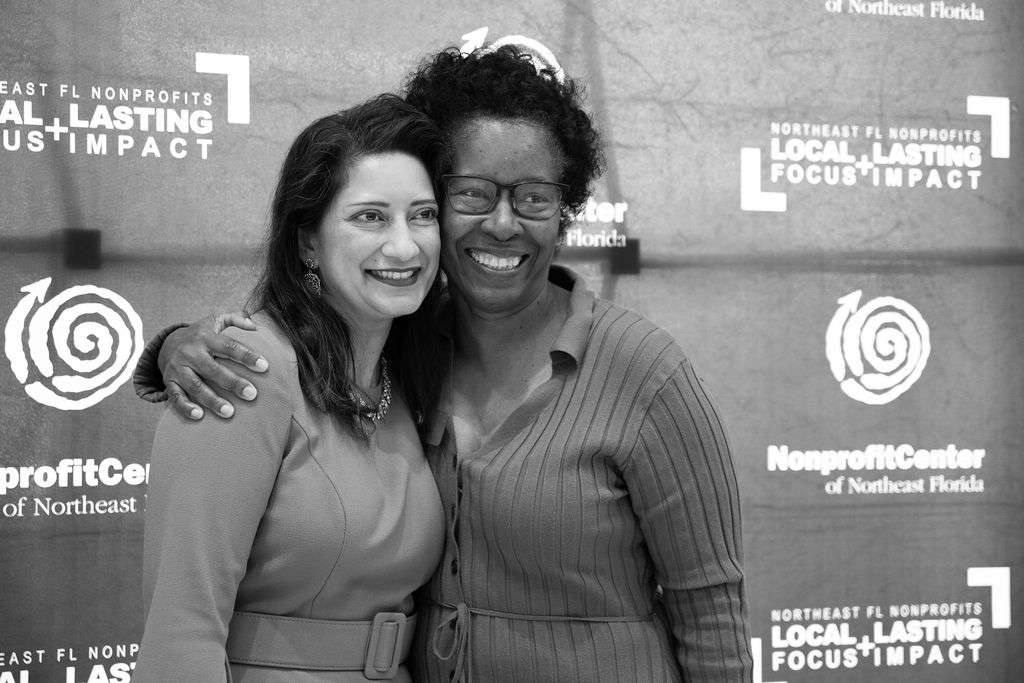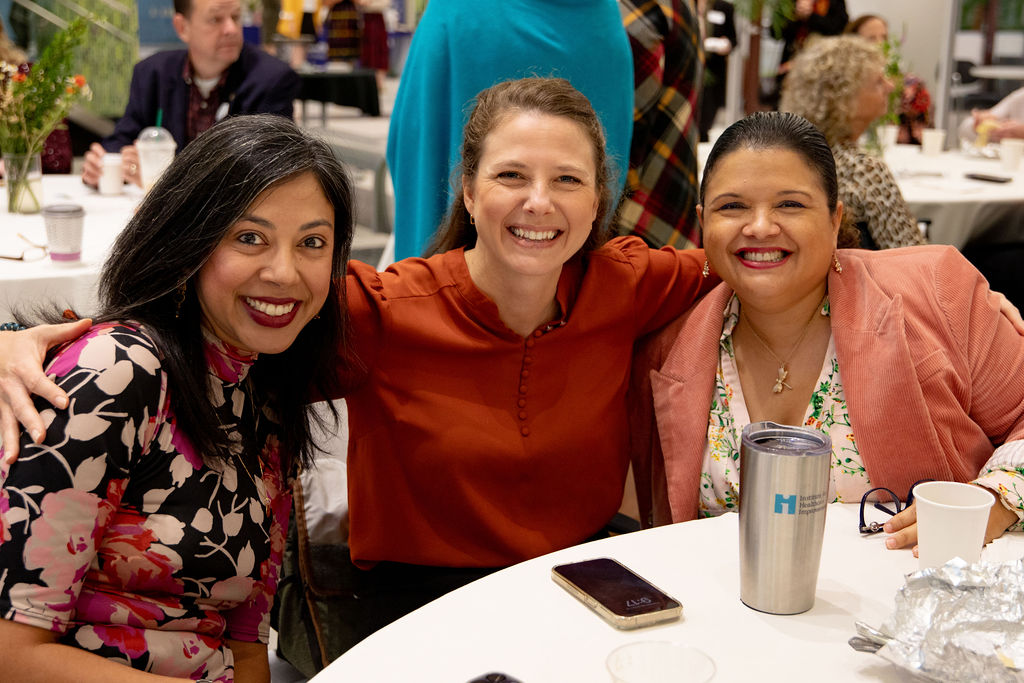Nonprofit Center's Committment to Diversity, Equity & Inclusion
The Nonprofit Center of Northeast Florida believes that diversity, equity, and inclusion (DEI) make us a better and stronger organization. We are committed to fostering a work environment where DEI strategy is fully integrated into our values, our programs and services, ensuring that we are actively breaking down barriers that limit access to resources, learning and belonging and lifting up the assets that contribute to a fully inclusive workplace. To achieve our vision of a vibrant, inclusive Northeast Florida, the Nonprofit Center acknowledges that it and the nonprofit sector have not always been leaders in dismantling systemic issues and, in some ways, have enabled inequitable systems. We are no longer satisfied with the status quo. This statement is the latest step in a process that we commit to being publicly accountable for.
The Nonprofit Center is on a journey to advance racial equity by being an inclusive leader in the nonprofit sector, acting with intention, and engaging and supporting diverse individuals. We celebrate the characteristics that make us unique individuals including genetic information, race, color, religion, age, sex, disability, gender identity and expression, sexual orientation, marital status, national origin, or veteran status. The Nonprofit Center’s organizational values are furthered and expanded upon by our commitment to putting equity at the center of our work
- Excellence: We strive for excellence in service, in the products we create or promote, and in honoring our community relationships. We know and understand that our work cannot be of the best quality if it does not include all voices at the table and recognize the significance of DEI — especially racial equity — in the work of the nonprofit sector.
- Leadership: We promote and elevate the diverse and powerful leaders in the nonprofit sector, hold ourselves and our partners accountable for actions that are counter to our values, and exhibit transparent leadership in our role as the voice of the sector.
- Unafraid: We are bold when we make decisions - about services, programs, and policies - so the nonprofit community can experience and learn from new, challenging, and cutting-edge practices. We are not afraid to identify and confront oppression in the nonprofit sector and within our own organization, even when it makes us or those around us uncomfortable.
- Reflective: We take time to reflect and evaluate on the programming, processes, and structure of the Nonprofit Center, including how they affect and are affected by issues of DEI. We celebrate when appropriate and change when needed.
- Welcoming: As a membership organization and community resource, we embrace all people and listen to diverse perspectives. We recognize that the greatest asset of any nonprofit is the people — staff, board, and volunteers — who do the hard work of social change. We take joy in creating an environment where people feel welcomed and included.
The Nonprofit Center recognizes and values the reputation we have in the nonprofit sector for convening, for conducting research that improves the sector, and for advocating for what we know is right. We are dedicated to leveraging our reputation and resources to create a more equitable sector that not only understands the importance of DEI in our work, but also leads the way as catalysts for change.
Facilitator & Program Partner FAQ
As the Nonprofit Center deepens its commitment to modeling and supporting equitable practices and systems, we want to ensure our programs are developed with that same intentionality and care. As a result, we have developed a brief guide of resources and information for any partner seeking work with the Nonprofit Center. The Nonprofit Centers goal is for all program partners to uphold the standards outlined in this guide.
The Nonprofit Center is on a journey to advance racial equity by being an inclusive leader in the nonprofit sector, acting with intention, and engaging and supporting diverse individuals. We celebrate the characteristics that make us unique individuals including genetic information, race, color, religion, age, sex, disability, gender identity and expression, sexual orientation, marital status, national origin, or veteran status.
- Allowing for participants to show up as their full selves. This means implementing practices such as using name tags or name tents where the participants can write their own name and pronouns (or if virtual, guide participants on how to rename their zoom profile).
- For in-person trainings, ensure that the event space is physically accessible. Review the Nonprofit Center’s accessibility standards HERE.
- Think through how people may need to engage with the content differently. This resource created by the DO-IT (Disabilities, Opportunities, Internetworking, and Technology) Center is a great starting point for understanding how to make these changes.
- Don’t isolate conversations around DEI to one slide at the end of your presentation. Instead, consider adding something to the beginning of your presentation that outlines how DEI plays a role in the topic and how it will be revisited throughout the presentation.
- Pictures and quotes are an easy way to incorporate diverse voices and identities into your presentation. Use stock images to create an inclusive environment where everyone can feel that the content is for them.
- Review examples, prompts, and scenarios used to ensure they are representative of the diverse identities, lived experiences, and perspectives in our communitites.
- Shift away from posing DEI as a discussion around morality and instead focus on how it’s an industry best practice.
- Invest into your own capacity and comfort in facilitating these conversations. Resources such as this guide from the Habitat for Humanity 2023 Unlocking the Future conference are a great place to start.
- Don’t shy away from these conversations. Prioritize psychological safety when building out how your training will feel and operate.
- Remember to decenter yourself from the discussion. Often we’re afraid to say or do the wrong thing and so we avoid complex conversations all together. Remember that mistakes happen, acknowledge them when they do, repair, and keep moving forward.
The Nonprofit Center collects anonymous feedback from our participants after every training and workshop. Feedback collected through these surveys, as long as it does not compromise confidentiality, can be shared in aggregate with the presenting facilitators upon request.
We also collect anonymous demographic information on our program participants to help the Nonprofit Center support a more diverse and equitable community. No personal data is shared, and aggregate data is reported only for the purpose of internal benchmarking. Aggregate information on our program audiences may also be shared with program partners upon request to help increase understanding of the Nonprofit Center's audiences.


